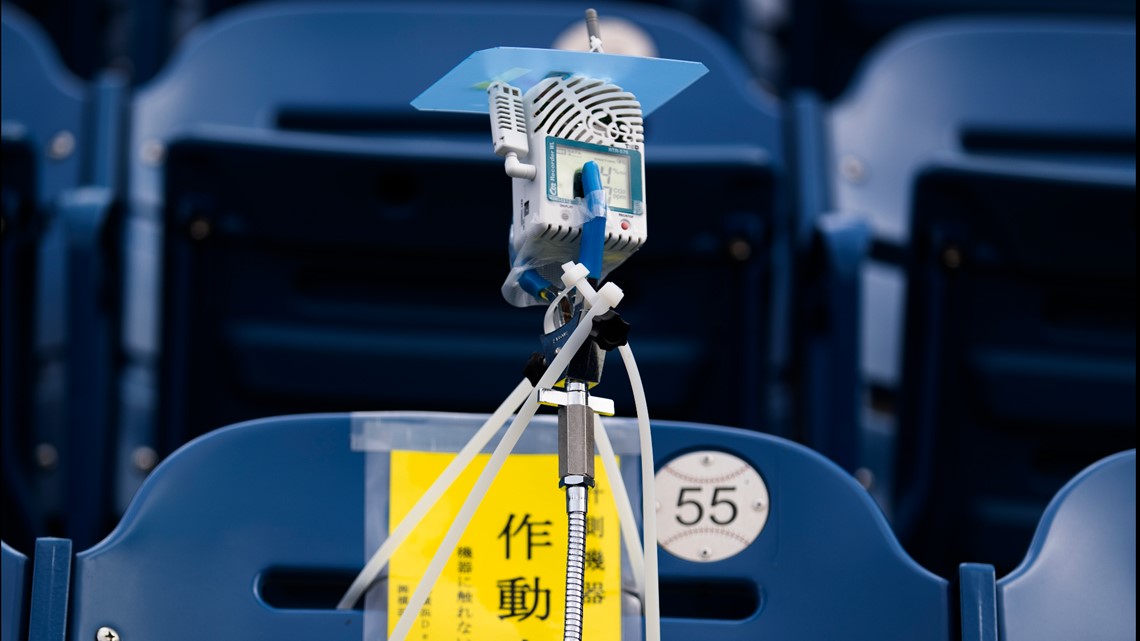MINAMI WARD, Yokohama — Officials in Japan are using some high-tech devices to see if they can fill sports stadiums closer to capacity during the COVID-19 pandemic.
The baseball stadium in Yokohama will be used this weekend in an experiment to test if its 32,000 seats can be filled safely. Japanese professional baseball games are being played there, but only using half the seats.
Officials are using high-precision cameras, carbon dioxide-monitoring devices and wind-speed measuring machines as part of countermeasures against COVID-19.
“We will report our findings here to the government," Kiyotaka Eguchi, an official of the Kanagawa prefecture, said Friday. “The information we get here will be reflected in the guidelines, and that will also be used for the next year’s Olympics and professional baseball.”
The Yokohama baseball stadium will be used as a venue for next year's Olympics, which are to open on July 23, 2021.
“I think this is a good opportunity to take a step forward because if the stadium isn’t full, the team will be in trouble," Yokohama BayStars fan Tetsuya Nakamura said.
About 1,750 deaths in Japan have been attributed to COVID-19, a relatively low number in a country of 126 million.



